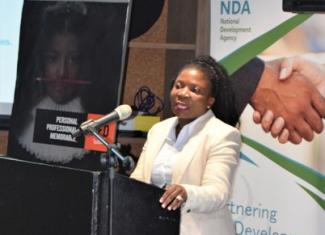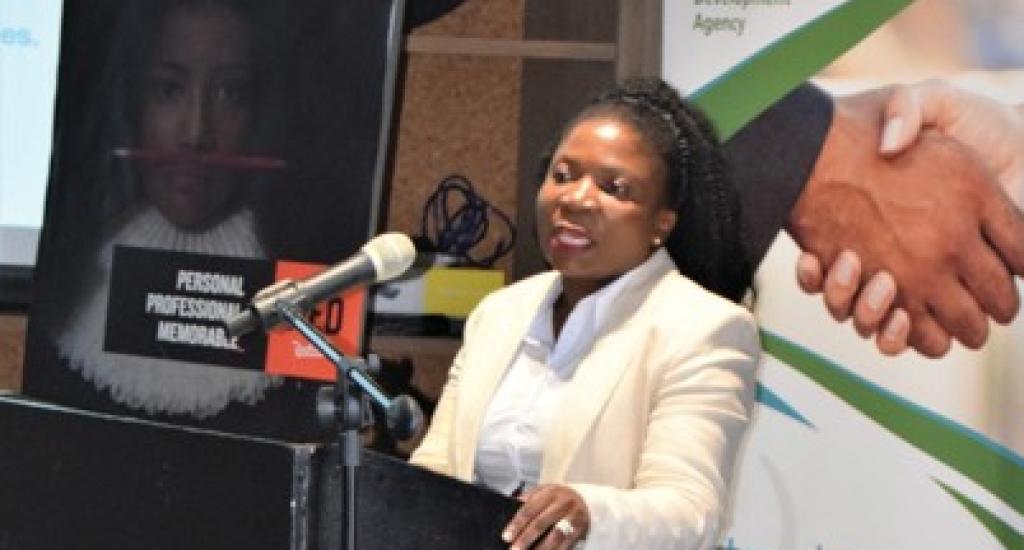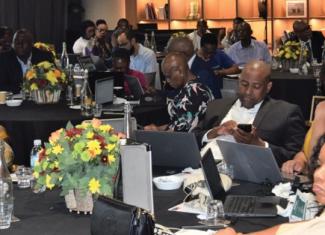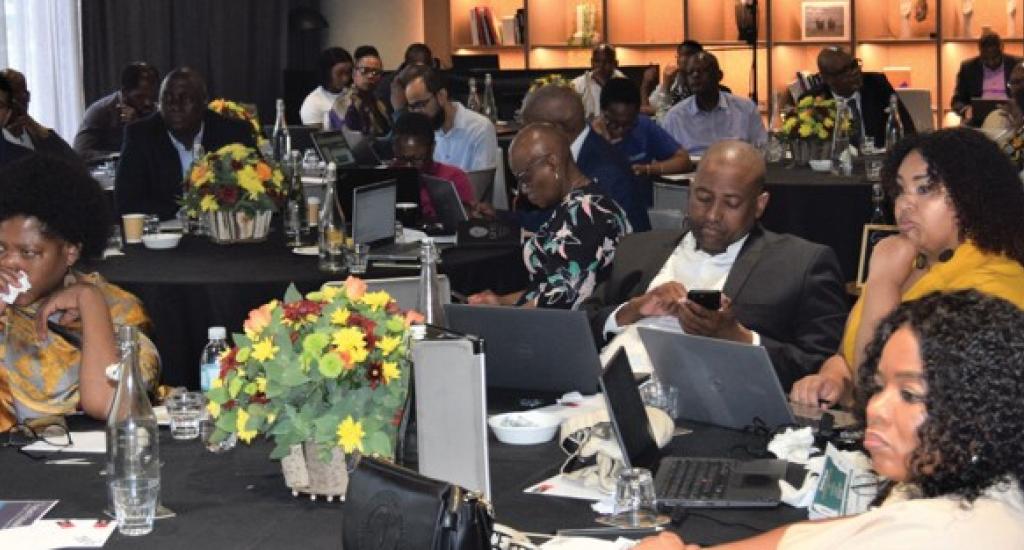Development experts support NDA’s quest to convert SDR grants into sustainable economic opportunities
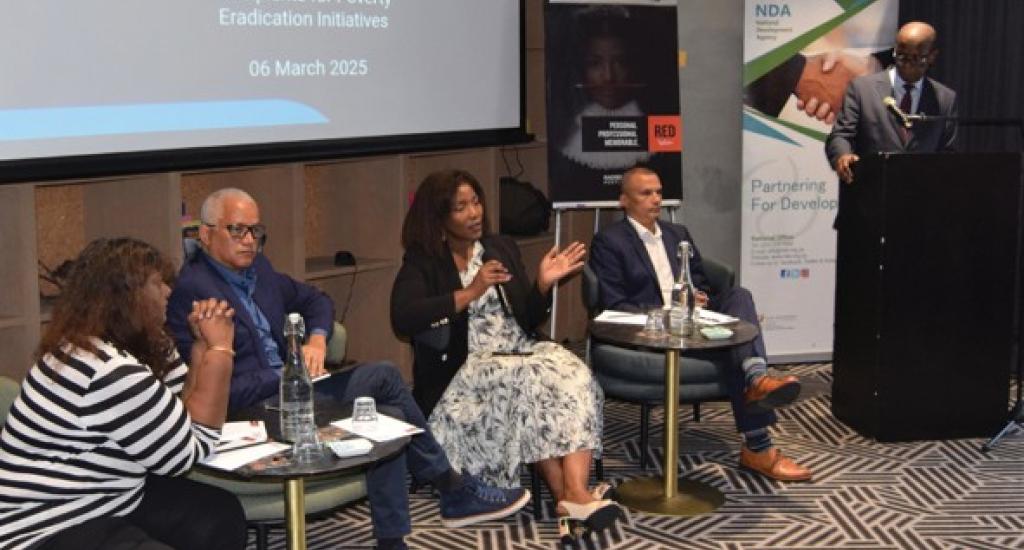
The National Development Agency (NDA), recently held a groundbreaking roundtable with experts in the development sector to pave a path that will turn the Social Relief of Distress (SRD) grants into sustainable economic opportunities.
Government introduced the SRD Grant as a temporary financial relief mechanism to cushion the youth from poverty during the Covid-19 pandemic. The R370-monthly grant still falls significantly below the R796 Food Poverty Line.
In the roundtable themed, Targeting Social Grants Recipients for Poverty Eradication Initiatives, the South African Social Security Agency (SASSA) revealed that it pays around R6.6 million a month to SRD beneficiaries, the bulk of whom are aged between 20 and 35 years. There are more applications that SASSA receives monthly, depicting the dire picture of the extent of youth unemployment.
Overall, 49% of recipients hold matric or tertiary qualifications and 53% have never been employed. The North West and Free State have the highest unemployment rate across all provinces, with women being the most impacted.
Why government’s R1.3-trillion spend has not realised rewards
The Deputy Director-General (DDG) of Statistics South Africa, Ashwell Jenneker, indicated the country’s population is at 63 mil- lion and poverty levels are at an all-time high with key drivers being unemployment, low education and slow economic growth. “Of grave concern is the youth population affected by these drivers, especially the 3.5 million youth not in [education], employment and training. We need to find solutions for this sector. When they are occupied with economic activities, we will see a change in numbers and this outlook [of high dependence on social relief measures provided by government],” said Jenneker.
The DDG of the Women’s Economic Empowerment and Poverty Eradication in The Presidency, Namhla Mniki, presented the Acceleration Plan on the country’s Anti-poverty Strategy. “Having mapped the overall government spend of R1.3 trillion on poverty interventions, we have identified three reasons why it has not yielded desired outcomes: small scale interventions by government; extreme fragmentation, resulting in duplication of efforts and a need to focus on inputs to results and impact,” Mniki said.
She cautioned that if the triple challenges of poverty, unemployment and inequality remain unchanged, the youth of this country will likely remain below the poverty lines for most of their lives.
The Acceleration Plan proposes interventions to maximise impact of the R1.3 trillion social wages, with holistic integrated approach to poverty alleviation. The areas of focus are social protection and service delivery, housing and settlement, food security, cost of living and livelihoods and the informal sector – another entry point to poverty eradication is due to its unacclaimed power to improve livelihoods significantly.
Successful initiatives
In reflecting on approaches to existing programmes that link social grants to economic opportunities, co-founder of Reconstructed Living Labs, Marlon Parker, presented a two-week training programme dubbed Re-Cha, that has assisted with the establishment of 52 youth-led micro enterprises that have collectively created 128 jobs.
These youth now earn double the minimum wage from selling over 1.2 million kilograms of waste and paper.
“What made this programme successful was establishing a value chain to provide a market with companies like Unilever, moreover, assisting the beneficiaries to find purpose and renew their hope was priceless as they have a fresh perspective about their own livelihoods,” said Parker.
The NDA also shared the impact of its poverty eradication programme that provides capacity development and grant funding to civil society organisations (CSOs), including youth initiatives across the country. One such programme is MaRocks Laundry Services in Ventersdorp, North West. Youth graduates who could not secure gainful employment decided to establish a laundry service in their community, having identified the demand and lack of supply.
The founders of the business started with their own resources and in November 2024, the laundromat received R222 316 from NDA to upscale the business. This grant enabled the business to double its income potential and train other youth that have been absorbed into the business.
NDA Chief Operations Officer Susan Khumalo said: “Skills are at the centre of what we do at the NDA. With skills transfer we have seen other beneficiaries even leave the CSOs to take up jobs in the formal sector”.
Voices of support
Social Development Director- General Peter Netshipale, lauded the engagement, saying: “This is long overdue, the NDA must lead the poverty eradication agenda of the country. This gathering that has brought together [different] sectors is a true reflection that government alone cannot address poverty and organisations in attendance, that present- ed successful outcomes even without government intervention, is testament of this.”
Netshipale’s sentiments were echoed by Nkosikhona Mbatha, the Acting Chief Executive Officer (CEO) of Small Business Enterprise Development and Finance Agency.
Collaboration
“We endeavour to continue working with the NDA to setup ecosystems that facilitate conducive environments for establishment and growth of small businesses and entrepreneurship. The NDA knows the lay of the land as far as community development needs are concerned, they are on the ground and together we can achieve more,” said Mbatha.
Representing the youth was Risuna Maluleke, the CEO of the Young African Entrepreneurs Institute. He emphasised the importance of involving the youth in initiatives that are meant to improve their livelihoods.
Recommendations
Participants agreed that poverty is a national crisis that requires a coordinated, collaborated and multi-sectoral approach. What is critical is maximising corporate social investments to realise real social impact that will benefit SRD recipients and to reduce the SASSA grants bill and the rate of unemployment.
Immediate steps will be taken to profile SRD recipients by conducting a nationwide assessment to determine the geographical spread, skills levels and entrepreneurial potential of beneficiaries. Strategic working groups will be established, alongside securing of commitments from stakeholders, to deliver clear deliverables within timelines.
This process will outline skills development programmes and linkages to economic opportunities coordinated by the NDA with identified role-players, including the establishment of a research hub that will produce evidence-based policy recommendations and generate actionable insights.
The NDA, alongside partners, will lead lobbying efforts to influence policies aimed at poverty reduction, developing a unified framework for sustain- able community development and strengthening resource mobilisation.
A pipeline of poverty eradication projects will be implemented in marginalised communities that support the growth of community-owned enterprises that foster local economic participation. “This roundtable is part of a long-term agenda feeding into an ongoing poverty eradication strategy. The NDA remains resolute and together with our partners, recognise that poverty eradication is an evolving challenge that must adapt to changing realities to reduce the SRD dependency. This initiative is de- signed to be dynamic, evidence-driven and inclusive. By leveraging [on] research, partnerships, and coordinated strategies, we can create long-term, transformative impact for South Africa,” said Thabani Buthelezi, Acting CEO of the NDA.



